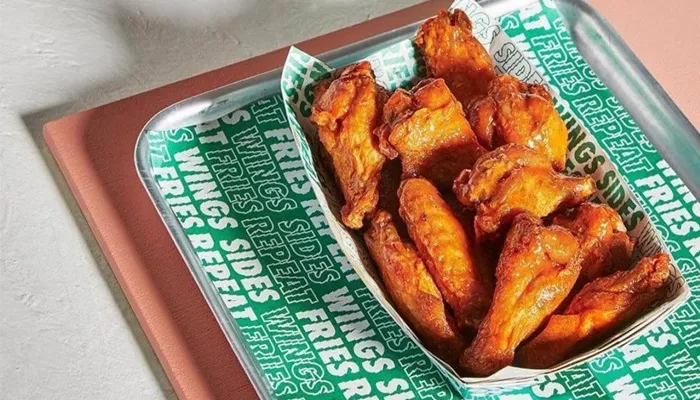Investing in a fast food franchise can be an exciting opportunity for aspiring entrepreneurs. With the right franchise, you can tap into a lucrative market and benefit from established branding and support systems. If you are looking to invest around $20,000, there are several fast food franchises that fit this budget. This article will explore these options in detail, helping you understand what each franchise offers and the requirements involved.
What Is Fast Food Franchising?
Fast food franchises are part of the quick-service restaurant (QSR) industry, which is known for its speed of service and convenience. These franchises allow individuals to operate a restaurant under a well-known brand name, benefiting from the company’s established marketing strategies and customer base.
Benefits of Buying A Franchise
Brand Recognition: Established franchises come with built-in customer loyalty.
Training and Support: Most franchises provide comprehensive training programs for new owners.
Proven Business Model: Franchises often have a tested business model that can lead to higher chances of success.
Marketing Assistance: Franchisees benefit from national marketing campaigns and promotions.
SEE ALSO: Why Did Bobby Burger Palace Close?
Initial Investment Considerations
When considering a franchise, it’s essential to understand the total investment required. This includes:
Franchise Fees: The initial cost to buy into the franchise.
Startup Costs: Expenses for equipment, inventory, and location setup.
Ongoing Royalties: A percentage of sales paid to the franchisor.
Fast Food Franchises You Can Buy for $20,000
Here are some fast food franchises available for around $20,000:
1. Wingstop
Franchise Fee: $10,000 to $20,000
Startup Costs: Ranges from $325,616 to $974,733
Royalty Fees: 6% of gross sales
Overview: Wingstop specializes in chicken wings with various flavors.
The brand has seen significant growth due to its focus on quality ingredients and customer experience.
2. Chick-fil-A
Franchise Fee: $10,000
Startup Costs: Typically ranges from $342,990 to $1,982,000
Royalty Fees: 15% of gross sales
Overview: Known for its chicken sandwiches and exceptional customer service, Chick-fil-A has a strong brand presence.
However, it is highly competitive to become an operator due to limited openings.
3. Firehouse Subs
Franchise Fee: $20,000
Startup Costs: Between $200,132 and $993,297
Royalty Fees: 6% of gross sales
Overview: Founded by firefighters, Firehouse Subs offers hearty sub sandwiches and is committed to community support through its foundation.
4. Dunkin’ (Non-Traditional Locations)
Franchise Fee: Starts at $10,000 for non-traditional locations (like airports)
Startup Costs: Varies widely based on location
Royalty Fees: 5.9% of gross sales
Overview: Dunkin’ is famous for its coffee and baked goods. The brand has a strong presence in non-traditional settings which can be less costly than traditional locations.
5. Jersey Mike’s Subs
Franchise Fee: $18,500
Startup Costs: Between $214,449 and $1,352,580
Royalty Fees: 6.5% of gross sales
Overview: Jersey Mike’s offers fresh sub sandwiches made with high-quality ingredients. The brand has been expanding rapidly across the U.S.
6. Tropical Smoothie Cafe
Franchise Fee: Approximately $30,000 (may have financing options)
Startup Costs: Ranges from $170,000 to $500,000
Royalty Fees: 5% of gross sales
Overview: This franchise focuses on smoothies and healthy food options. It appeals to health-conscious consumers looking for quick meals.
7. Little Caesars
Franchise Fee: Approximately $20,000
Startup Costs: Between $350,000 and $1 million
Royalty Fees: 6% of gross sales
Overview: Known for its “Hot-N-Ready” pizzas, Little Caesars has a strong market presence and offers affordable pizza options.
8. Smoothie King
Franchise Fee: Starts at around $30,000 but financing options may lower upfront costs.
Startup Costs: Between $268,900 and $585,600
Royalty Fees: 6% of gross sales
Overview: Smoothie King specializes in smoothies that cater to health-conscious consumers with various nutritional options.
Key Considerations Before Investing
Before deciding on a franchise:
Research the Brand’s Reputation:
Look at reviews and ratings from current franchisees.
Assess customer satisfaction levels.
Understand Your Market:
Analyze local demand for the franchise’s offerings.
Consider competition in your area.
Financial Planning:
Ensure you have enough capital not just for initial investment but also for operating expenses.
Explore financing options if needed.
Consult Current Franchisees:
Speak with existing owners about their experiences.
Ask about challenges they faced and how they overcame them.
Review Franchise Disclosure Document (FDD):
This document contains essential information about the franchise’s financial performance and obligations.
Conclusion
Investing in a fast food franchise can be a rewarding venture if approached thoughtfully. With several options available around the $20,000 mark—such as Wingstop, Chick-fil-A, Firehouse Subs, Dunkin’, Jersey Mike’s Subs, Tropical Smoothie Cafe, Little Caesars, and Smoothie King—there are opportunities for aspiring entrepreneurs to enter the fast food market without overwhelming financial burdens.
Related topics:
- What Are The Most Popular Flavors at Omusubi Gonbei?
- What Makes The Chinese Chicken Burger so Popular?
- What Are The Most Popular Items at Culver’s?

